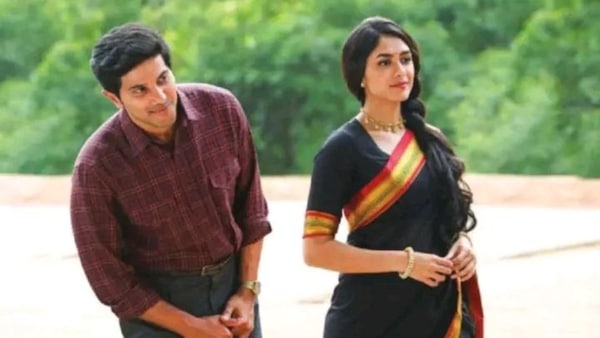Sita Ramam review: This Dulquer Salmaan, Mrunal Thakur starrer is a wannabe classic minus soul and depth
Hanu Raghavapudi, the director delivers an unengaging fare and struggles to translate his ambitious ideas onto the big screen

Last Updated: 02.39 PM, Aug 07, 2022
Story:
Afreen is a rebellious student from London who returns home to meet her grandfather and former army officer Tariq. Tariq has a last wish on his deathbed; Afreen needs to deliver a letter to a woman named Sita Mahalakshmi. When Afreen and Balaji begin their search for Sita, they discover the deeper truths of her love story with a soldier Ram. What is that letter all about? Will Sita and Ram’s romance have a happy ending in store?
Review:
Whenever a film is promoted as a classic and visual poetry on celluloid even before its release, it’s important for the makers to be doubly careful and back those bombastic claims with a compelling story. With grand production design and larger-than-life costumes being the constant focus points in Sita Ramam and the desperate effort to make every frame look like a painting, the focus on the storytelling takes a backseat and the problems with its writing appear more glaring.
Sita Ramam spans over two decades, from the 60s to 80s, revolving around an unsent letter and a romance that has to overcome several barriers. There’s more to the film than its romance - it strives to be a commentary on religion, patriotism and mirrors the constant conflict between our personal and professional lives. The plot points on paper are terrific but the director Hanu Raghavapudi fails to translate them into a full-blown script with engaging moments.
The writer, director is genuinely nostalgic about the retro era and times when letters were a primary mode of communication and people celebrated ‘shiddat wala pyaar’. The Veer Zaara-esque setting has a soldier chasing a woman purely on the basis of a letter. They fall for one another through their poetry and their ideas more than looks. Even when they realise that the road ahead may not be a bed of roses, they stand by one another through thick and thin.
The war in the film isn’t limited to two countries alone; several characters wage a daily battle between true love and duty, nation and self-interest. The film is all about the choices they make and the price they need to pay for them. There are interesting twists and turns in the story but the film utilises them more for shock effect and doesn’t substantiate them with the writing.
When the only intent here is to make a film ‘look good’, Sita Ramam, for a major part, ends up looking like a fancy dress competition alternating between two timelines. The props to depict the period era are artificially colourful. The director even has the lead pair stepping on paint and makes them walk a few steps together on the floor to create a metaphoric effect. Sita Ramam’s micro-detailing is interesting though it misses the larger picture of a scene on most occasions.
The dialogues are overly poetic, unnatural and the storytelling is inconsistent. The director hasn’t learnt from his mistakes with Andaala Rakshasi and Padi Padi Leche Manasu. He has a knack for picking the right plots with enough drama though screenplay isn’t his strength at all. His understanding of the Kashmir-Pakistan issue is extremely superficial and the lack of authenticity reflects on the screen.
The film tries to redeem itself with the pre-climax portions and a few twists but the ending is unimpactful. Vishal Chandrasekhar’s music is excellent though the picturisation is only partly appealing. Despite Dulquer Salmaan’s earnest efforts, it’s hard to buy his performance as a Telugu-speaking soldier with the dicey dialogue delivery. Mrunal Thakur, in an overly dramatic role, looks like a dream donning designer saris scene after scene. Her performance, unfortunately, never penetrates your soul.
Sumanth has a deliciously flawed role; what’s harder to understand is why he had to ham so much to pull it off? Rashmika’s effervescence is appealing in her extended cameo. Tharun Bhascker shines in his portions though the role is very similar to Vijay Deverakonda’s part in Mahanati. The entire Rashmika-Tharun Bhascker thread, in fact, has a huge Mahanati hangover. The likes of Bhumika, Prakash Raj, Gautham Menon, Priyadarshi, Vennela Kishore and others hardly get a scope to prove themselves.
Verdict:
Sita Ramam strives too hard to be a classic, focusing mostly on the visual aesthetic and compromises on the storytelling. Dulquer may have gotten away with the shaky Telugu accent in Mahanati, though it’s evident now that he needs to put more effort into his dialogue delivery.
Mrunal Thakur’s performance is strictly okay while Sumanth is disappointing in an otherwise well-written role. Director Hanu Raghavapudi may claim to be a good writer but he needs to remember that filmmaking is more about execution than ambition.
Subscribe to our newsletter for top content, delivered fast.
